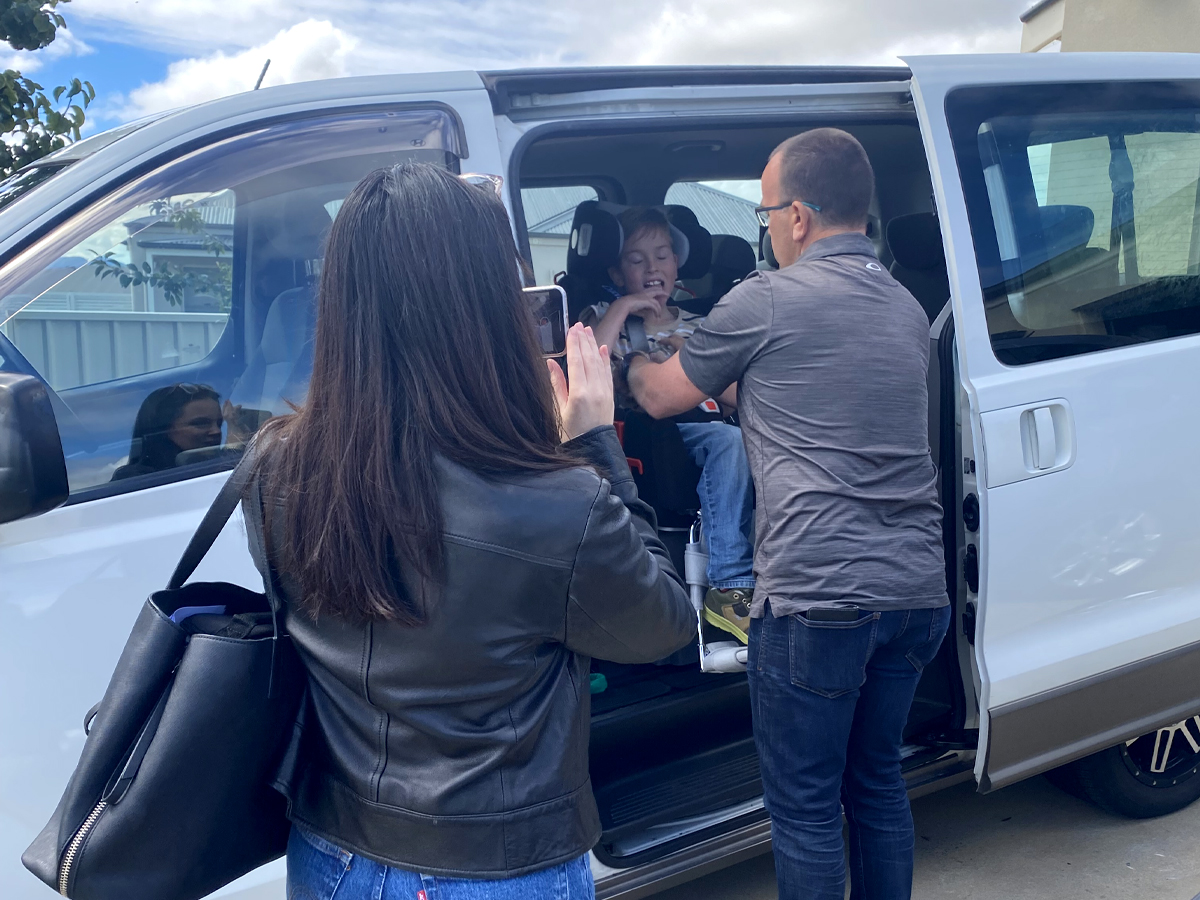New research into the transport experiences of Australian children with disabilities and their families has revealed systemic issues that leave them feeling unsafe, excluded and isolated.
The report, ‘It shouldn’t be this hard’, was undertaken by Monash University’s Emerging Technologies Research Lab and Mobility and Accessibility for Children in Australia (MACA).
Researchers went into the lives of 10 families of children with disabilities and medical conditions across Australia, conducting interviews, observations and ride-alongs to get a deeper understanding of their day-to-day transport experiences and the challenges they face.
The research found that the families shared a common, and often isolating, experience of “fighting” for their child’s right to safe motor vehicle transport. Other themes included:
- Concerns about the road safety of their child, family and other road users when travelling with their child
- The impact on their child and family’s ability to participate in daily life
- Negative experiences with services, systems and processes relating to their child’s transport needs
- The impact on families’ emotional, physical and economic health associated with managing their child’s transport needs.
Monash Emerging Technologies Research Lab director, Professor Sarah Pink said the research provides a rigorous evidence base and understanding of how these challenges come about, and how the ways that children with disabilities and their families interact with institutional stakeholders might be improved.
“To ensure that children living with disabilities and their families don’t continue to fall through the cracks of regulatory and institutional governance and procedure we need to start in the right place, with the people whose lives are impacted. We need to account for the real needs of children with disabilities and their families, this means taking seriously the problems they face and the solutions they need, and it requires genuine co-design between families and the stakeholder institutions and agencies involved.”
MACA chief executive, Helen Lindner, said the findings were upsetting but unfortunately not surprising. “Children with disabilities and medical conditions have been left behind when it comes to safe and accessible transport in Australia, despite being our most vulnerable road users,” she said.
“These families shared harrowing experiences ranging from serious road safety incidents, their child being unable to go to school because they don’t have access to suitable transport, or the physical and emotional toll of managing their child’s transport needs.
“MACA has already started to address some of the systemic barriers experienced by families in this research, but there is much more to be done. This research is shining an important light on often hidden experiences to help drive system-wide change and increase the safety, independence, social and community participation of children with disabilities and their families.”
For more details go to: Mobility and Accessibility for Children in Australia Ltd

